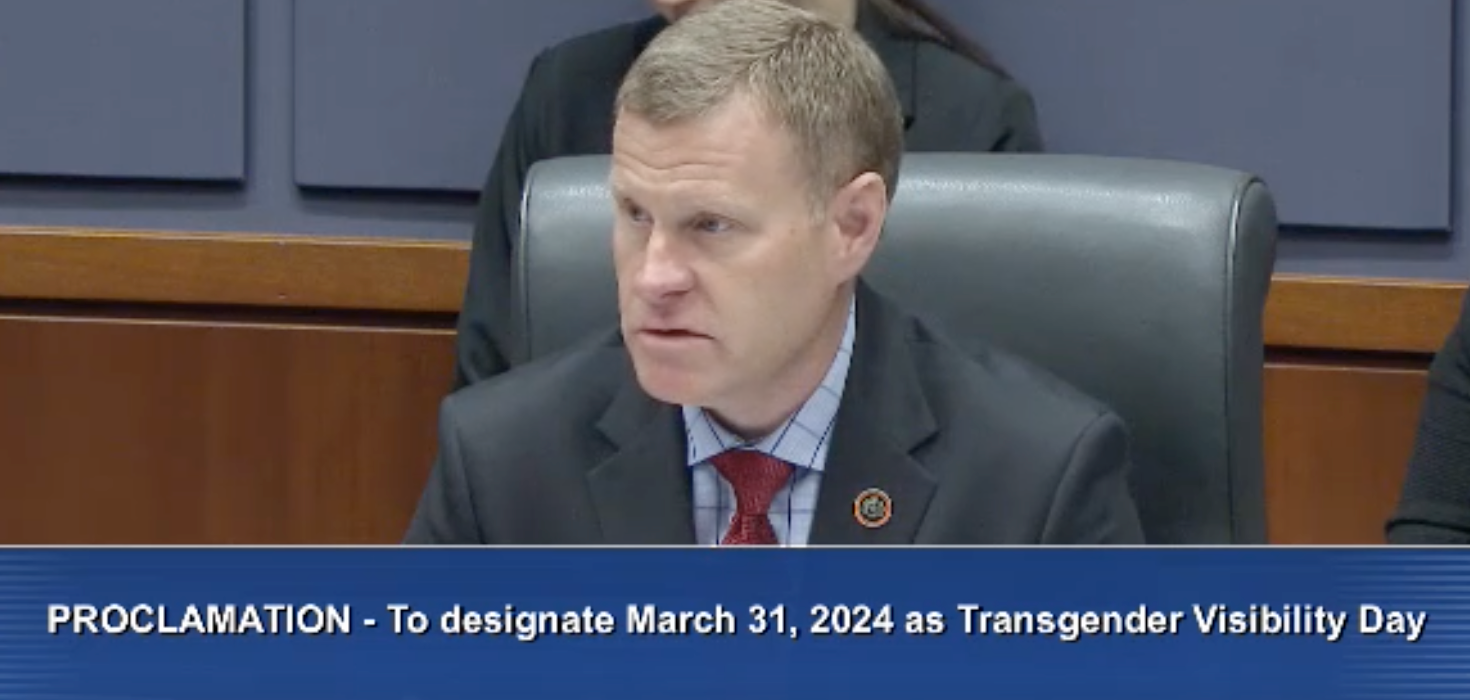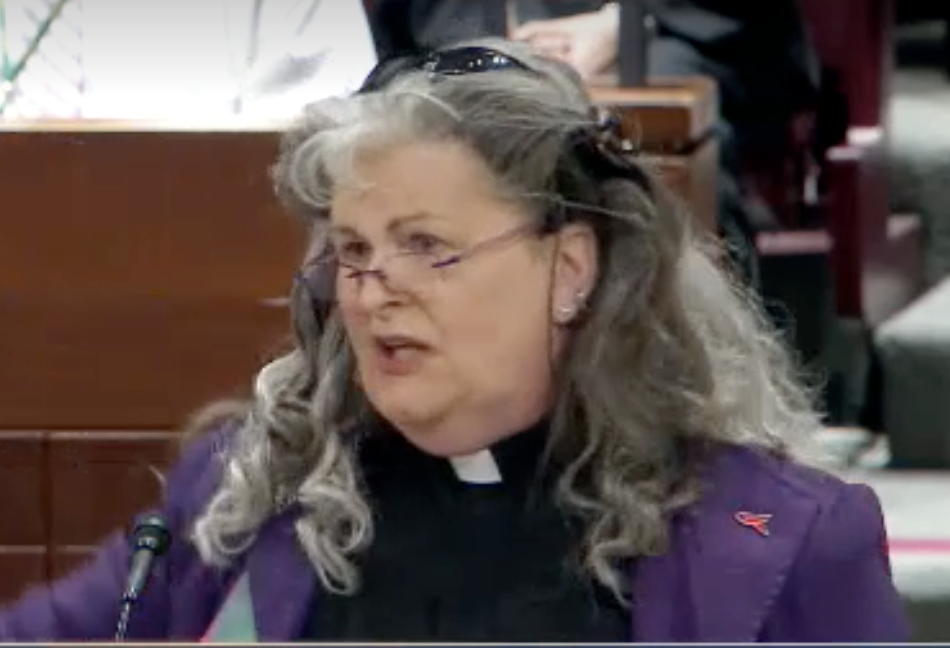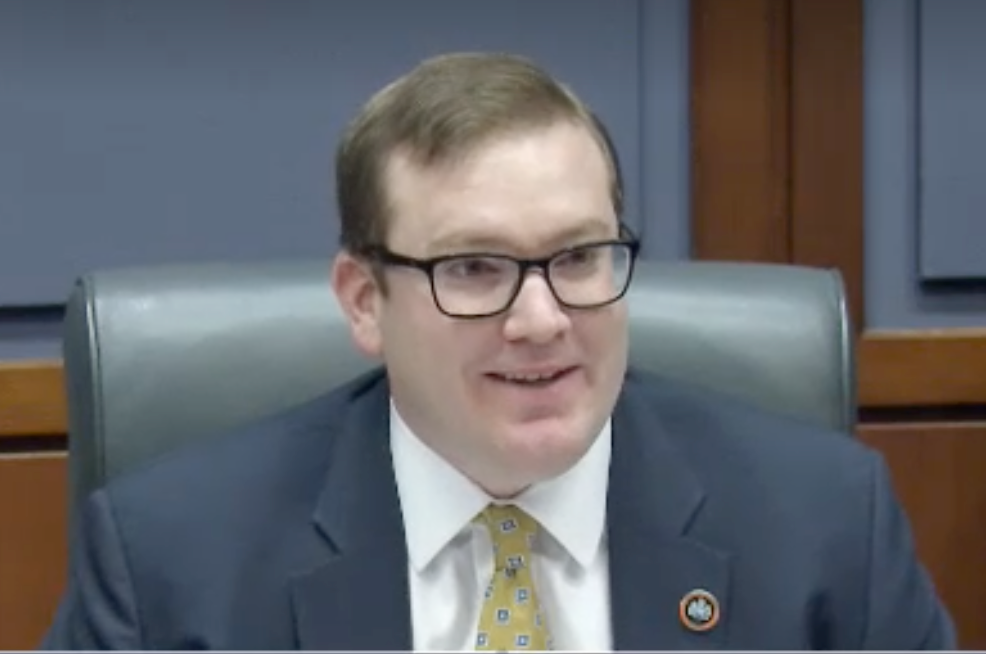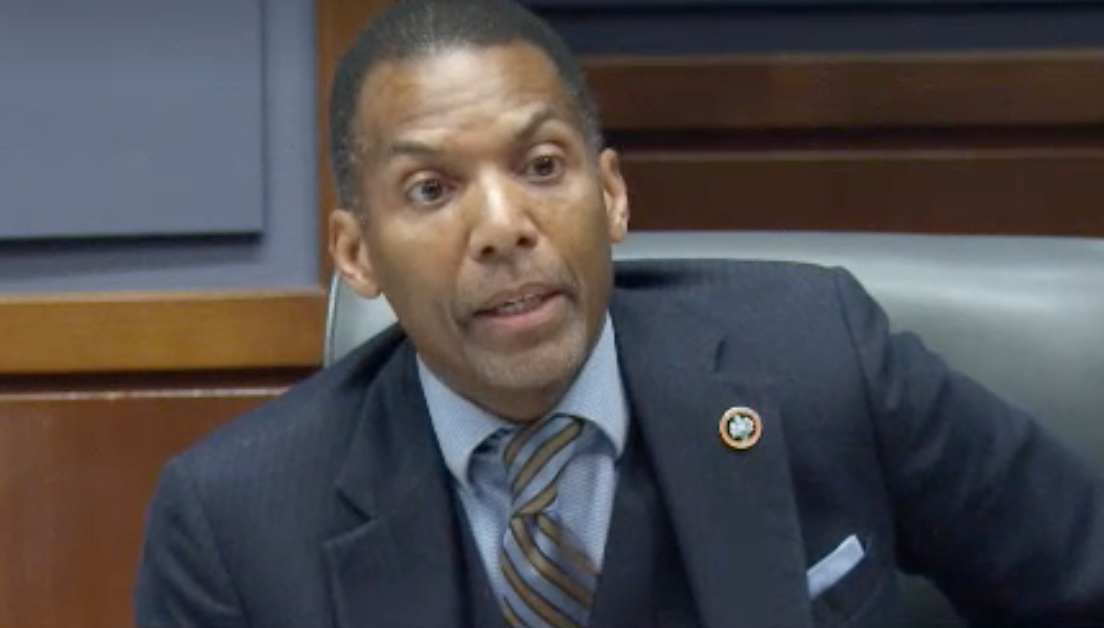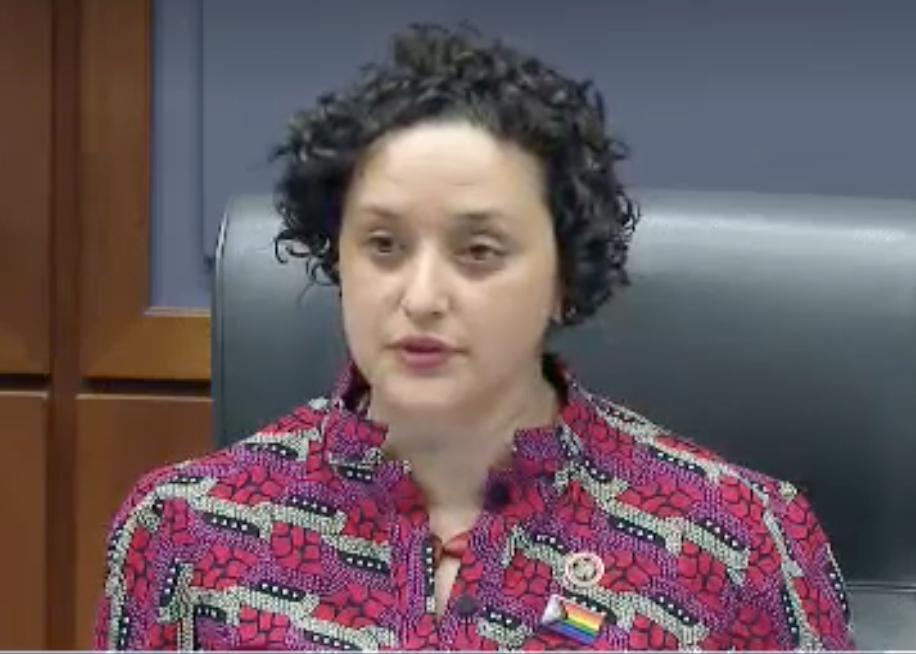Chairman Jeff McKay, Fairfax County Board ofSupervisors
Rev. Emma Chattin of the Transgender Education Center in Burke
Supervisor James Bierman, Dranesville District
Supervisor Rodney Lusk, Franconia District
Supervisor Dalia Palchik, Providence District
At the last meeting of the Fairfax Board of Supervisors, in a vote of 9-0, supervisors pledged an alliance with the county’s transgender and non-binary residents, proclaiming Sunday, March 31, Transgender Day of Visibility in the county, affirming the board’s commitment to inclusion and acceptance of all under One Fairfax.
Transgender students and adults in Fairfax County feel particularly vulnerable due to the rising wave of recent proposed legislation in the Virginia General Assembly to restrict their rights and freedoms. They have seen bills targeting them introduced in the 2024 General Assembly, all of them introduced by Republicans: forced outing in schools (H.B. 670), healthcare age restrictions (S.B 671), sports bans (S.B. 68), and more. No proposed anti-transgender legislation passed in the Virginia General Assembly where Democrats are in the majority in both the House of Delegates and state Senate.
Amidst an increase in bullying and hate crimes against transgender individuals, Rev. Emma Chattin of the Transgender Education Center in Burke welcomed the Fairfax County Board of Supervisors proclamation recognizing March 31 as Transgender Visibility Day. Chattin said that transgender people are a small sliver of the population and are often left wondering why everyone is so frightened and threatened by them, “even to the point of, I don't know, leaving the room whenever we enter.”
Last Tuesday, Supervisor Pat Herrity, walked out of the Board Auditorium in the County Government Center moments before the remaining nine Democratic supervisors stood in solidarity during the board’s regular meeting.
Chattin said that states are proposing and enacting anti-trans laws, and hate crimes and incidents in schools have quadrupled. She explained how the human impact and consequences of anti-trans rhetoric and policy must be acknowledged. Every act of visibility for trans people, “even in Northern Virginia, carries with it a risk of life and livelihood,” Chattin said.
She noted that transgender women of color in the community face additional intersectional obstacles of prejudice regarding safety and housing, employment, and health care. The Transgender Education Center supports individuals transitioning and communities preparing for transitioning individuals.
Dranesville District Supervisor James N. “Jimmy” Bierman Jr., read the Proclamation on behalf of the other eight supervisors. He said the transgender community is experiencing continuing challenges, struggling against marginalization and discrimination, yet it is “resilient and continues to contribute to the betterment of society.”
“We affirm and restate our commitment to building a culture of inclusion and acceptance of transgender individuals,” Bierman said.
Providence District Supervisor Dalia Palchik tracked the Fairfax County Youth Survey statistics given to all FCPS students in grades 6, 8, 10, and 12 each fall. Palchik said that more than half of Fairfax County’s transgender students are depressed, and nearly half have considered suicide. Palchik confirmed that the LGBT community stands out higher than any other demographic among FCPS students for depression, attempting suicide, and contemplating suicide.
“To me, it is a moral imperative, also a public health imperative, that we band together,” Palchik said.
Franconia District Supervisor Rodney L. Lusk praised the school-age members in the community who have embraced and shown support and understanding for transgender people. Lusk illustrated the importance of the proclamation, contrasting it with when he was in college. Lusk stated that he was a member of a committee that collaborated with the Gay and Lesbian Student Union. Lusk called its president and asked if he would meet him on the center’s grounds. “The answer he gave me was shocking,” Lusk said.
The president of the Gay and Lesbian Student Union told Lusk he could not do so. When asked why not, he said student community members had been chasing him and throwing bricks and rocks at him. That was enlightening for Lusk. The first-hand account aided Lusk in comprehending the struggles and hardships those in that situation can face.
“I just want to say how important this proclamation is, and we are here with you. We acknowledge the difficulty of your experience, and we're going to stand in solidarity,” Lusk said.
Chairman Jeff McKay discussed the board’s moral responsibility to stand up for everyone it represents, not just those it likes or agrees with. “But stand up for all people in our community, especially those persecuted relentlessly by people who think that shows strength when in reality, it shows a tremendous amount of weakness to walk out on people and not stand up for them.”
McKay referenced the March 12 Washington Post story [“In states with laws targeting LGBTQ issues, school hate crimes quadrupled”].
“The cover story was about statistics that were showing a quadrupling of reported incidents of hate crimes against K through 12 students who go to schools in states that have anti-LGBTQ laws. And so the effect that some of these state houses are having, sadly, is the effect that some of those elected officials want, which is to persecute people without regard for human life and without regard for dignity.”
